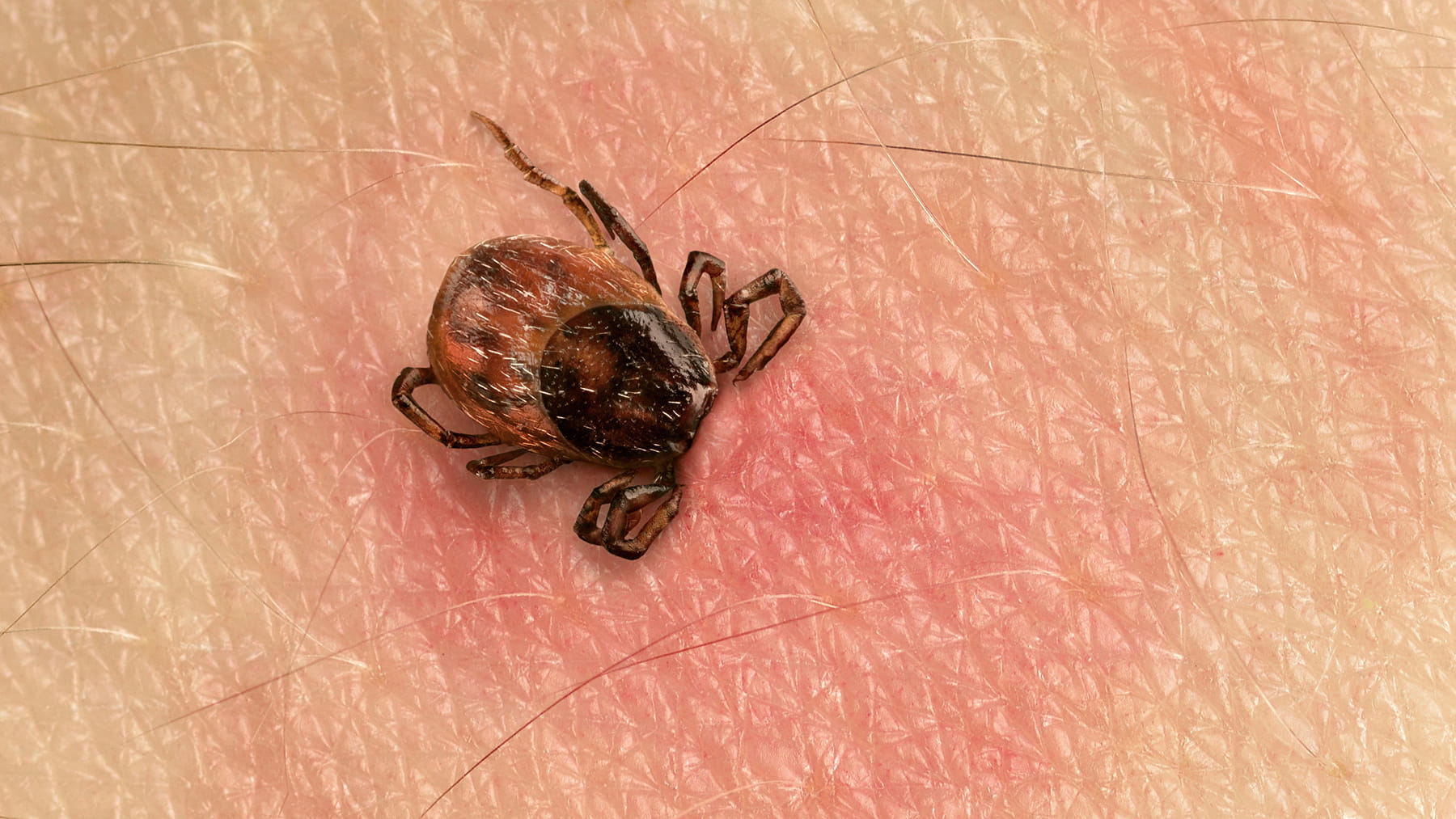5 things to know about tick and mosquito bites

Our Infectious Diseases doctor shares five facts that might surprise you about mosquito and tick illnesses.
Plus, Christina Liscynesky, MD, who teaches medical students at The Ohio State University College of Medicine to diagnose and treat infectious illnesses, tells us how she keeps mosquitoes away and what she does when she finds a tick on her skin.First, here are her insider insights on the mosquito and tick season:
1. Your risk of getting sick from a bite hasn’t worsened significantly from last summer!
Don’t worry too much if you get a bunch of surprise bites when you dash outside without repellant, Dr. Liscynesky says.Living in a more developed country, we have more precautions that reduce infection rates, including common use of window screens and air conditioning, access to effective repellant and robust mosquito control programs, she explains.
So far, mosquitoes in Ohio aren’t transmitting the Zika virus, which can cause birth defects, she points out. The illness, spread by mosquito bites, intercourse and childbirth, generally doesn’t cause great damage to healthy adults, she says.
Important Zika safety note: Pregnant women or those trying for a baby and their partners should learn travel guidelines. Read our expert’s Zika prevention tips.
Dr. Liscynesky wants people to be aware of potential risks without panicking.
“In Ohio, not every bite carries a serious chance for harm,” she says. “The summer bug bite season is not any riskier than last year.”
2. To get Lyme disease, the tick has to be on you for MANY hours
Specifically, the tick must be attached for at least a day and a half, she says. It would be engorged from taking a blood meal. (We know: gross.)“It takes a while to transmit bacteria from the tick into the blood stream,” she says. “If it’s just there for 20 minutes, you’re not going to get Lyme disease.”
3. If you catch an illness besides Lyme disease from a tick bite, you’re more likely to feel really sick
While Lyme disease symptoms, such as joint pain, rash and fever, usually aren’t life-threatening, other tick-borne illnesses often make people seriously sick.Two examples are ehrlichiosis, a disease found mostly in southern Ohio ticks, and Rocky Mountain spotted fever, caught by a small number of people annually throughout the state. Both cause severe symptoms, including headache, fever, muscle aches and vomiting – often hospitalizing victims.
4. The government has a list of approved repellents that this doctor trusts
Dr. Liscynesky turns to the Environmental Protection Agency’s nifty online tool that helps you choose a bug repellent, based on how long you’ll be outside and whether you need tick protection.She typically goes for repellant with DEET, which the EPA says is safe for everyone – pregnant women and children included. (There were some early concerns about the safety of DEET, but multiple studies have found no evidence of adverse effects.)
5. Infectious Diseases docs keep us from spreading and catching illnesses
What do hospitals do when a new infectious threat emerges – say Ebola and now Zika?Infectious Diseases doctors at Ohio State Wexner Medical Center implement a plan that includes using new lab tests, educating physicians on screening patients and helping determine safety procedures to stop the illnesses from multiplying in the hospital.
“A new disease brings a change of practice for the doctors, and we educate them on what’s changing. Then they educate their patients,” Dr. Liscynesky says. “We are responsible for patient safety in the hospital.”
As for her personal plan for dealing with these biting pests, Dr. Liscynesky sticks to tried-and-true basics:
- Remove a tick immediately from skin with tweezers, dislodging all mouthparts
- Check your body for ticks daily when camping or hiking or if you live in a tick-heavy area
- Wash a tick bite site with soap and water and cover with a bandage – no antibiotic ointment required
- Keep arms and legs covered outside and use repellent, applying it AFTER sunscreen
- Be diligent about eliminating spots near your house where water pools and mosquitoes breed, including gutters, planters and whatever stuff gets left out: garden containers, toys, campfire pits




